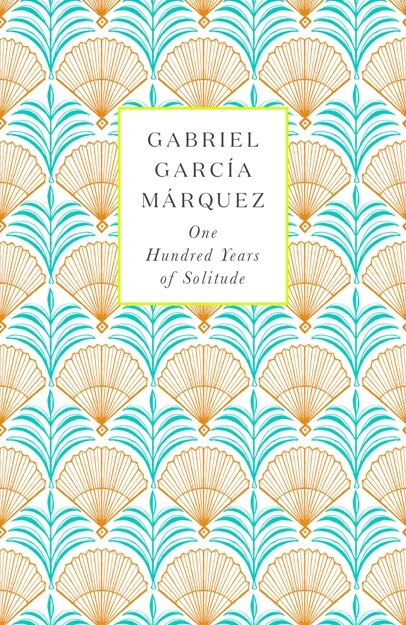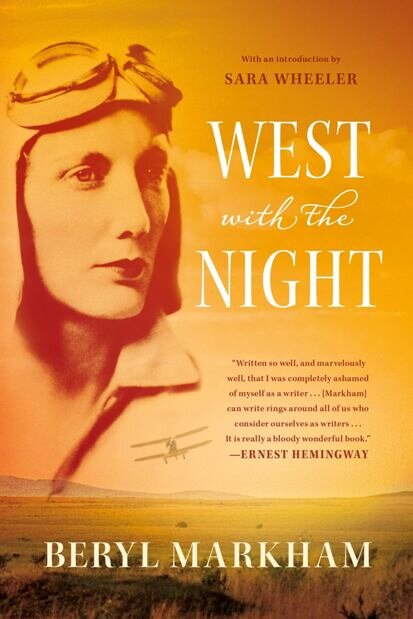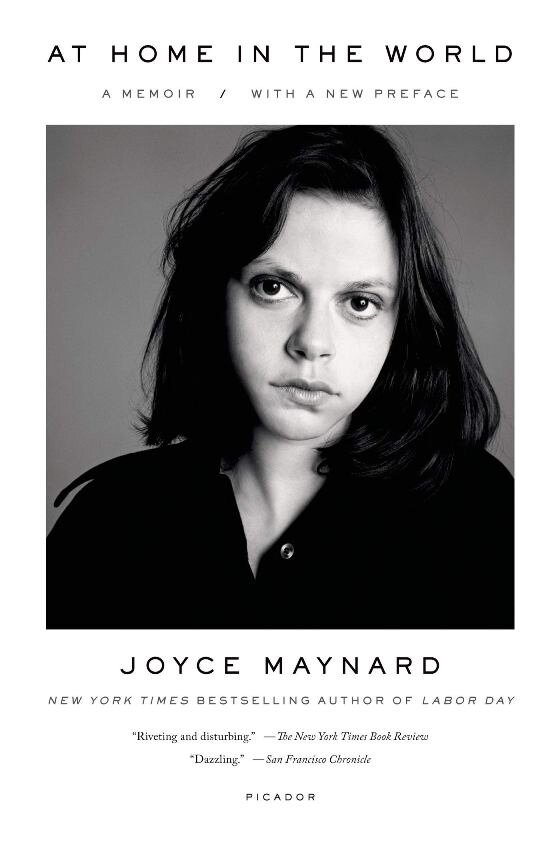Archives: 10 reads for 2021
The start of the new year still goes for many of us with curfews, confinement, closed bars-restaurants and cultural places, and therefore, more time spent at home. Then what better than a good book to get away from it all and forget about the gloomy news for just a few hours... The perfect opportunity to dive back into your library. Purchased books that pile up, those of which we have only read one chapter, those too long we stop in the middle caught by the latest novelty, we all have them. It is high time to get down to it. Let's take a look back at ten former traveling companions, something to maybe inspire you.
1. One Hundred Years of Solitude, Gabriel García Márquez.
Penguin Books, 2014, 432p.
“Many years later, as he faced the firing squad, Colonel Aureliano Buendía was to remember that distant afternoon when his father took him to discover ice. At that time Macondo was a village of twenty adobe houses, built on the bank of a river of clear water that rang along a bed of polished stones, which were white and enormous, like prehistoric eggs. The world was so recent that many things lacked names, and in order to indicate them it was necessary to point.”
In Macondo, a small secluded village in South America, the illustrious Buendía family is condemned to one hundred years of solitude by the prophecy of the gypsy Melquiades... In a whirlwind of revolutions, civil wars, plagues and destruction, it experiences a mythical saga, with an unforgettable savor, which crosses the three ages of life: birth, life and decline...
A story both meticulous and delirious of a dynasty: the founding, by the ancestor, of a South American village isolated from the rest of the world; the great hours marked by magic and alchemy; decadence ; the flood and the death of animals. One Hundred Years of Solitude is this giant theater where myths engender men who in turn engender myths, as in Homer, Cervantes or Rabelais. This breathtaking novel is one of the masterpieces of the 20th century world literature.
Gabriel García Márquez was born in 1928 in Aracataca, a village in Colombia, the Macondo, of which much of his work talks about. He studied at the National University of Colombia in Bogota, and later worked as a reporter for the Colombian newspaper El Espectador and as a foreign correspondent in Rome, Paris, Barcelona, Caracas and New York. Through the years, he has built a fictional work that has made Colombia a universal literary myth. He received the Nobel Prize for Literature in 1982.
2. White Teeth, Zadie Smith.
Penguin Books, 2001, 542p.
“Early in the morning, late in the century, Cricklewood Broadway. At 06.27 hours on 1 January 1975, Alfred Archibald Jones was dressed in corduroy and sat in a fume-filled Cavalier Musketeer Estate face down on the steering wheel, hoping the judgement would not be too heavy upon him. He lay forward in a prostate cross, jaw slack, arms splayed either side like some fallen angel; scrunched up in each fist he held his army service medals (left) and his marriage licence (right), for he had decided to take his mistakes with him. A little green light flashed in his eye, signalling a right turn he had resolved never to make. He was resigned to it. He was prepared for it. He had flipped a coin and stood staunchly by its conclusions. This was a decided-upon suicide. In fact it was a New Year’s resolution.“
Wielding zany, satire and humor with a consummate art, Zadie Smith produces here an explosive first novel, which strikes with its ambition and extraordinary energy.
3. Chronicles. Volume One, Bob Dylan.
Simon & Schuster, 2005, 320p.
“It wasn’t money or love that I was looking for. I had a heightened sense of awareness, was set in my ways, impractical and a visionary to boot. My mind was strong like a trap and I didn’t need any guarantee of validity. I didn’t know a single soul in this dark freezing metropolis but that was all about to change — and quick.“
Through Dylan’s eyes and open mind, we see Greenwich Village, circa 1961, when he first arrives in Manhattan. Dylan’s New York is a magical city of possibilities — smoky, nightlong parties; literary awakenings; transient loves and unbreakable friendships. Elegiac observations are punctuated by jabs of memories, penetrating and tough. With the book’s side trips to New Orleans, Woodstock, Minnesota, and points west, Chronicles is an intimate and intensely personal recollection of extraordinary times.
4. Barbarian Days, William Finnegan.
Corsair, 2016, 512p.
Surfing only looks like a sport. To initiates, it is something else entirely: a beautiful addiction, a demanding course of study, a morally dangerous pastime, a way of life.
Raised between California and Hawaii, William Finnegan started surfing as a child. He has chased waves all over the world, wandering for years through the South Pacific, from Fiji to Indonesia, from the crowded beaches of Los Angeles to the deserts of Australia, from the townships of Johannesburg to the cliffs of Madeira Island.
A bookish boy, and then an excessively adventurous young man, he went on to become a distinguished writer and war reporter. Barbarian Days takes us deep into unfamiliar worlds, some of them right under our noses—off the coasts of New York and San Francisco. It immerses the reader in the edgy camaraderie of close male friendships annealed in challenging waves.
Through his memoir and recalling his own apprenticeship, Finnegan considers the intense relationship formed between man, board and water. With infinite modesty emerges the portrait of a man who will have found in his relationship to the ocean an escape from the world and a constant source of wonder.
Barbarian Days was honored with the prestigious Pulitzer Prize in 2016.
5. West with the Night, Beryl Markham.
North Point Press, 2013, 320p.
"Have you read West with the Night?... It is really a bloody wonderful book." This comment from Hemingway in his correspondence made it possible in the eighties to rediscover Beryl Markham, an aviation pioneer whose life was extremely adventurous. She spent her childhood in Kenya and was the first woman in Africa to obtain a racehorse trainer's license. She discovered aviation at the age of thirty and for several years flew between Kenya, Sudan and Rhodesia, carrying passengers, mail, medicine and resupplying safaris. In 1936, she was the first to cross the North Atlantic, alone aboard her single-engine aircraft. She took off from Abingdon in England and landed twenty-one hours and twenty-five minutes later on the American continent where she received a triumphant welcoming. West with the Night is the vibrant testimony of a woman in love with freedom, of an "insatiable traveler", as Beryl used to call herself.
6. Freedom Climbers, Bernadette McDonald.
Rocky Mountain Books, 2011, 355p.
Freedom Climbers tells the story of a group of extraordinary Polish adventurers who emerged from under the blanket of oppression following the Second World War to become the world's leading Himalayan climbers. Although they lived in a dreary, war-ravaged landscape, with seemingly no hope of creating a meaningful life, these curious, motivated and skilled mountaineers created their own free-market economy under the very noses of their Communist bosses and climbed their way to liberation. At a time when Polish citizens were locked behind the Iron Curtain, these intrepid explorers found a way to travel the world in search of extreme adventure — to Alaska, South America and Europe, but mostly to the highest and most inspiring mountains of the world. To this end, Afghanistan, India, Pakistan and Nepal became their second homes as they evolved into the toughest group of Himalayan climbers the world has ever known.
This is a fascinating window into a different world, far-removed from modernity yet connected by the strange allure of the mountain landscape, and a story of inspiring passion against all odds.
7. A Fortune-Teller Told Me, Tiziano Terzani.
Crown, 2002, 384p.
“The mind is perhaps the most sophisticated instrument we have, yet we do not give it the attention we give our leg muscles.”
Warned by a Hong Kong fortune-teller not to risk flying for an entire year, Tiziano Terzani—a vastly experienced Asia correspondent—took what he called “the first step into an unknown world. [. . .] It turned out to be one of the most extraordinary years I have ever spent: I was marked for death, and instead I was reborn.”
Traveling by foot, boat, bus, car, and train, he visited Burma, Thailand, Laos, Cambodia, Vietnam, China, Mongolia, Japan, Indonesia, Singapore, and Malaysia. Geography expanded under his feet. He consulted soothsayers, sorcerers, and shamans and received much advice—some wise, some otherwise—about his future. With time to think, he learned to understand, respect, and fear for older ways of life and beliefs now threatened by the crasser forms of Western modernity. He rediscovered a place he had been reporting on for decades. And reinvigorated himself in the process.
For thirty years Tiziano Terzani has lived in Asia, reporting on its wars and revolutions as Far East correspondent of the German newsmagazine Der Spiegel. Born in Florence, he was educated in Europe and the United States. In 1975 he was one of the few Western journalists to witness the North Vietnamese takeover of Saigon.
8. At Home in the World, Joyce Maynard.
Picador, 2013, 400p.
In 1972, Joyce Maynard, an undergraduate at Yale, wrote an article for the New York Times Magazine called 'An Eighteen Year Old Looks Back on Life'. Among the hundreds of letters she received as a result, one expressed deep affection for her writing, and concern at the exploitation that she might be subjected to. The writer was J.D. Salinger, author of Catcher in the Rye and famous recluse.
Their correspondence led first to friendship, and then to love, and after a few months she dropped out of college to live with him. In spite of the thirty-five year difference in their ages, she believed they would be together always - but after a year, he sent her away.
A quarter of a century later — having become a writer, survived the end of her marriage and the deaths of her parents, and with an eighteen-year-old daughter of her own — Maynard pays a visit to the man who broke her heart. The story she tells — of the girl she was and the woman she became — is at once devastating, inspiring, and triumphant.
9. Underworld, Don DeLillo.
Scribner Classic Edition, 2007, 832p.
From the chronicle of ordinary lives caught in the vice of the Cold War to the great - and small - history of the atomic bomb, from the legendary baseball game played in New York City in 1951 to the twilight epilogue in Central Asia, Underworld covers the last half-century of American history.
In an abundance of plots, some of the figures who marked this period, J. Edgar Hoover, Frank Sinatra, among others, cross and cross again the characters of the fiction. Their voices, mingled, build a polyphony that DeLillo directs and organizes down to its most subtle modulations.
This monumental eight-part work dissects the terrible fears and emotions of the American people from the post-war period to the third millennium. It stages the other side, dark and underground, of contemporary humanity.
10. A Course on English Literature, Jorge Luis Borges.
New Directions, 2014, 320p.
“I believe that the phrase ‘obligatory reading’ is a contradiction in terms; reading should not be obligatory. Should we ever speak of 'obligatory pleasure'? Pleasure is not obligatory, pleasure is something we seek. Obligatory happiness! We seek happiness as well. For twenty years, I have been a professor of English Literature in the School of Philosophy and Letters at the University of Buenos Aires, and I have always advised my students: If a book bores you, leave it; don’t read it because it is famous, don’t read it because it is modern, don’t read a book because it is old. If a book is tedious to you, leave it, even if that book is 'Paradise Lost' — which is not tedious to me — or 'Don Quixote' — which also is not tedious to me. But if a book is tedious to you, don't read it; that book was not written for you. Reading should be a form of happiness, so I would advise all possible readers of my last will and testament—which I do not plan to write— I would advise them to read a lot, and not to get intimidated by writers' reputations, to continue to look for personal happiness, personal enjoyment. It is the only way to read.”
Argentine writer Jorge Luis Borges (1899-1986) was a professor of English and North American literature at the University of Buenos Aires. This volume publishes all of his 1966 lectures.









